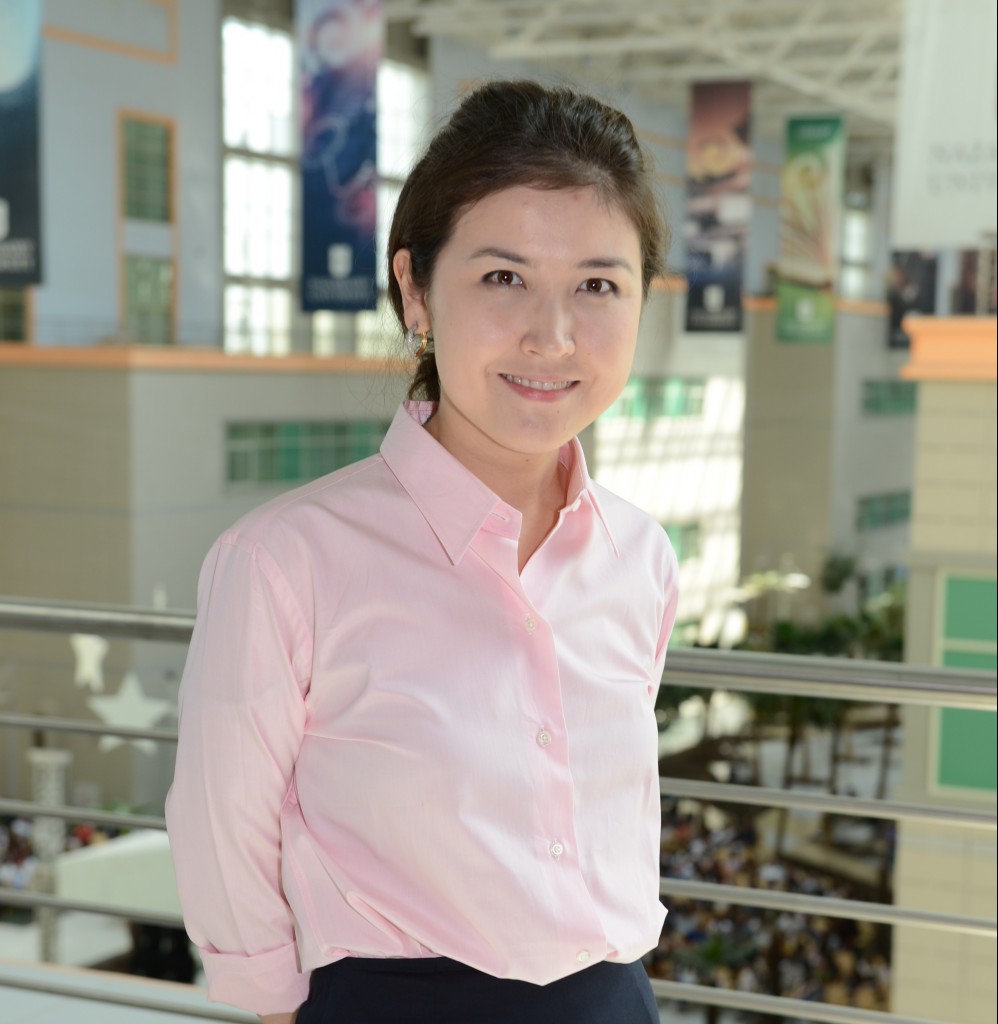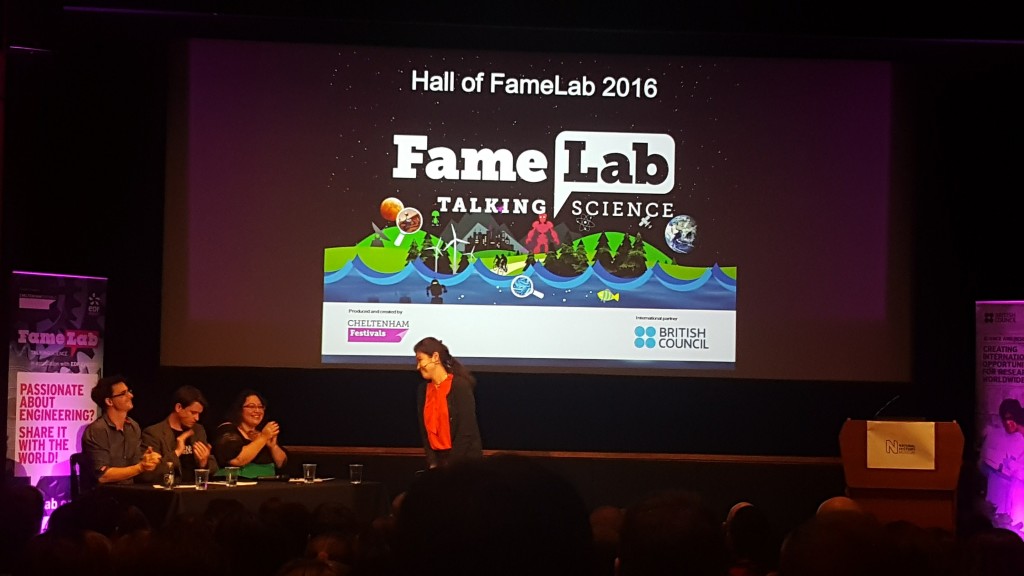ASTANA – Water is all you need. Water resources specialist Aiman Temirova is raising the issue of high water consumption in households and the agricultural and industrial sectors. This vital and precious natural resource will run out in the future, according to her studies, a topic of great interest at FameLab 2016, the biggest science communication competition in the world.
As a finalist in the programme, Temirova was invited by the British Council to represent Kazakhstan at the Hall of FameLab, which took place in September at the Natural History Museum in London. Ambitious scientists from Bulgaria, Egypt, Greece, Ireland and South Africa attended the science talks, which were streamed live in more than 70 countries worldwide.
“At the Hall of FameLab, I learned so many interesting facts from the participants. For example, I was surprised to learn about the reasons why diamonds have different colours and why tattoos cannot be removed easily. It was so great to find out that there are millions of people worldwide who enjoy watching scientists talk science, technology or engineering in an engaging and fun way. I was thrilled to discover that many people in Kazakhstan found time on a Friday night to support me by watching my live performance online. After the event, I discovered that a lot of people wished me good luck on the British Council Kazakhstan’s social media account,” Temirova said in a recent interview with The Astana Times.
Temirova spoke at the event about a low-cost water treatment option using grapheme, a lightweight and strong material that is both abundant and inexpensive. Membranes made from graphene can effectively remove wastewater contaminants, such as pathogens and pharmaceuticals.
“FameLab encourages young scientists, who spend most of their time in labs, to talk science and share their research findings with the audience, who have no scientific background. It may sound challenging, but was really rewarding in the end: while you are on stage, you feel the power to influence the audience’s opinion about your research topic and motivate the public to support and/or engage with science. At FameLab, you get to meet many scientists who work in universities and industry. So, if you are a young scientist who wishes to get out of your comfort zone, communicate with the public, meet many new interesting people and just have fun, I would like to encourage all youngsters to participate in such events,” she said.
Currently, Temirova is pursuing her career as a researcher at Nazarbayev University. She studied microbiology and environmental engineering at George Washington University as part of the Bolashak Scholarship.
“I was invited by Sciences Po Paris and Ecole Polytechnique, the most prestigious institutions in France, to do a joint Master’s degree in Economics and Public Policy. At Nazarbayev University, I am able to successfully apply my knowledge of biological sciences and public policy in my research activities and investigate the water and sanitation problems from different perspectives,” she said.
“Every day you are given a chance to cooperate with local and international scholars and find new ways to contribute and lead change to build a stronger research capacity of Kazakhstan at the university,” she added.
Her current research is focused on finding low-cost water supply and sanitation options that would be sustainable in the nation’s rural regions.
“This year, I spent the whole summer at the Imperial College London as a visiting researcher. Thanks to the British Council travel grant, I was able to apply my research ideas in the best British university in the field of water engineering. Recently, I have been offered a place in their PhD programme that would allow me to apply my ambitious goals of solving the problems with water supply and sanitation provision in rural regions of my home country,” she said.
Temirova feels confidence that her research goals will be realised, as her colleagues and international organisations support all her projects.
“My ultimate goal is to help Kazakhstan enter the list of the world’s thirty most developed countries by providing the economically-vulnerable regions of Kazakhstan with a sustainable supply of drinking water and sanitation. You have to be very active at what you do, because your research is assessed not only at the national, but also at the international level by prominent researchers. You have to win international grants to keep your research going and produce research output such as academic and non-academic papers, conference proceedings and others,” she said.


